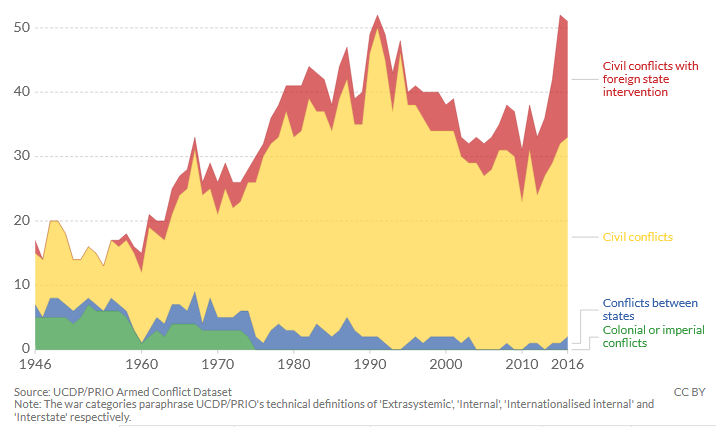
Should @NATO reorient itself to counter 🇨🇳, as recommended recently by @sb_moller?
As it turns out, doing so is consistent with the original vision of the "Atlantic Pact".
[THREAD]
washingtonpost.com/outlook/chinas…
As it turns out, doing so is consistent with the original vision of the "Atlantic Pact".
[THREAD]
washingtonpost.com/outlook/chinas…
Consider three aspects of how the "Atlantic Pact" was viewed when originally negotiated.
First, it was recognized that the alliance could have a reach outside of Europe -- potentially as far as China.
The general framework of the alliance was laid out during the ABC ("American" "British" "Canadian") Talks in spring 1948.
According to the minutes of the talks, the participants had explicitly discussed mentioning China in the treaty's preamble as a region of importance.
According to the minutes of the talks, the participants had explicitly discussed mentioning China in the treaty's preamble as a region of importance.

The source of that passage is the Foreign Relations of the United States series
Link: search.library.wisc.edu/digital/AKIGLE…
Link: search.library.wisc.edu/digital/AKIGLE…
Second, the "Atlantic Pact" was not conceived as a purely military alliance.
To get to the core of NATO's original purpose, one needs to go back to the initial discussions around the alliance
The initial idea for the "Atlantic Pact" came from British Foreign Minister Ernest Bevin
The initial idea for the "Atlantic Pact" came from British Foreign Minister Ernest Bevin

In early 1948, Bevin met with his French, Canadian, & American counterparts to discuss devising "some western democratic system...a sort of spiritual federation of the west."
The goal was "To create confidence in Western Europe that further Communist inroads would be stopped."
The goal was "To create confidence in Western Europe that further Communist inroads would be stopped."
I discuss Bevin's initial proposals in chapter 5 of 👇
amazon.com/Arguing-about-…
amazon.com/Arguing-about-…
The concern at the time wasn't Soviet invasion: it was an undermining of democratic systems from within (via Soviet influence).
That's why the "Prague Coup", according to State Department official Jack Hickerson, " scarred the bejesus out of everyone"
That's why the "Prague Coup", according to State Department official Jack Hickerson, " scarred the bejesus out of everyone"

To achieve this, the participants at the ABC talks felt the pact should include "those states sharing western civilization."
Note that @NATO might have been WTO with the `W' standing for "Western"
Note that @NATO might have been WTO with the `W' standing for "Western"

The source of that passage is again the Foreign Relations of the United States series
Link: search.library.wisc.edu/digital/AKIGLE…
Link: search.library.wisc.edu/digital/AKIGLE…
It's interesting that the ABC participants thought limiting the membership to only states possessing "Western Civilization" would exclude Greece -- despite, you know, Greek culture being considered the "foundation" of Western Civ 🤷♂️ 

It should be noted that the "Western Civilization" orientation of the pact was part of the French argument for why Italy had to be included: despite the other pact members having just fought a war against Italy, you can't leave out "Roman culture" (another Western civ foundation) 

I'll admit that this whole discussion is a bit too "clashy" for me.
https://twitter.com/ProfPaulPoast/status/1198787340711452678
But there's no denying that the ideas were present at the creation of NATO
cambridge.org/core/journals/…
cambridge.org/core/journals/…
The main point is that the "Atlantic pact" was not envisioned as purely a deterrence-oriented military alliance against Soviet tanks & nukes...even if that is what it eventually became
cambridge.org/core/journals/…
cambridge.org/core/journals/…
Third, don't forget Article II of the North Atlantic Treaty: to forge closer economic and political ties 

This is commonly called the "Canadian clause" because Lester B. Pearson, Canadian's Secretary of State for Foreign Affairs at the time, pushed for its inclusion. Pearson wanted the provision included so that the "Atlantic Pact" wasn't solely a "military alliance". 

There are additional arguments that one could make in support of @sb_moller's proposal, such as the expanded conception of @NATO's purpose -- read, "democracy promotion" -- after the Cold War
link.springer.com/article/10.105…
link.springer.com/article/10.105…
And one could indeed argue against the proposal, saying that regardless of how @NATO was originally conceived, it should play no role outside Europe today.
Of course, I think that argument is over...and has been for some time
press.princeton.edu/books/hardcove…
Of course, I think that argument is over...and has been for some time
press.princeton.edu/books/hardcove…
But the main point is that expanding @NATO's geographic reach & missions scope, while inconsistent with its name, is not inconsistent with how it was originally conceived.
[END]
[END]
• • •
Missing some Tweet in this thread? You can try to
force a refresh







